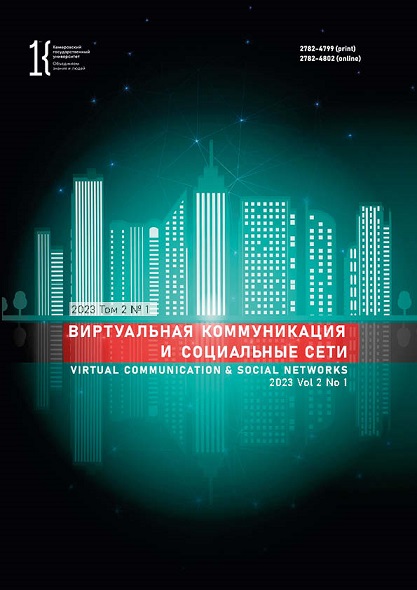Kemerovo, Russian Federation
Network capital provides leaders of youth organizations with mobility. According to P. Bourdieu and J. Urry, network capital develops and maintains social relations without reference to geographical location, which makes it a source of emotional, financial, or practical benefits. Network capital is supplemented and enhanced by digital capital, i.e., digital skills, online activities, membership in virtual communities, etc. Youth organization leaders accumulate network and digital capital at different stages of their career in a youth organization: before joining, as a member, and after leaving. The author interviewed experts and analyzed biographies of youth organization leaders to prove that membership in such organizations provided them with numerous opportunities and accelerated their career. In general, network interactions manifested at different stages of leaders' life path, contributing to their mobility.
leader, youth, youth organizations, network, network capital, digital capital
1. Bourdieu P. Forms of capital. Journal of Economic Sociology, 2002, 3(5): 60-74. (In Russ.)] https://elibrary.ru/oyuvrd
2. Burmakina A. L. Leader status in youth organizations and movements: the case of ethnocultural associations of the Kemerovo region. Vestnik Kemerovskogo gosudarstvennogo universiteta. Seriia: Politicheskie, sotsiologicheskie i ekonomicheskie nauki, 2020, 5(1): 44-52. (In Russ.)] https://doi.org/10.21603/2500-3372-2020-5-1-44-52
3. Vartanova E. L., Gladkova A. A. Digital capital within the context of the intangible capital concept. Mediascope, 2020, (1). (In Russ.)] https://doi.org/10.30547/mediascope.1.2020.8
4. Guzhavina T. A. Social capital of young people: experience of the sociological analysis. Sotsial'noe prostranstvo, 2017, (1). (In Russ.)] URL: http://socialarea-journal.ru/article/2187 (accessed 28 Apr 2023). https://www.elibrary.ru/yhzwvf
5. Davydova N. M., Tikhonova N. E. Calculation methodic of resources provision in analyzing social stratification. Sotsiologicheskie issledovaniya, 2006, (2). (In Russ.)] URL: https://www.isras.ru/files/File/Socis/1-6-2006/tixonova_davydova.pdf (accessed 28 Apr 2023). https://www.elibrary.ru/opcefj
6. Dyatlov S. A. Network human capital of millennials as a driver of the digital economy development. Izvestiya Sankt Peterburgskogo gosudarstvennogo ekonomicheskogo universiteta, 2019, (4): 26-31. (In Russ.)] https://www.elibrary.ru/rziihl
7. Karavai A. V. Russian workers: social capital and capital accumulation settings. Monitoring of Public Opinion: Economic and Social Changes, 2016, (3): 1-15. (In Russ.)] https://doi.org/10.14515/monitoring.2016.3.01
8. Kranzeeva E. A. The specifics of modern women's political consciousness and behavior. Vestnik Tomskogo gosudarstvennogo universiteta. Filosofiya. Sotsiologiya. Politologiya, 2020, (56): 173-183. (In Russ.)] https://doi.org/10.17223/1998863X/56/17
9. Lyublinsky V. V. Social capital and political relations in the context of network society. Social and Humanitarian Knowledge, 2021, (5): 107-119. (In Russ.)] https://doi.org/10.34823/SGZ.2021.5.51672
10. Orlova V. V. Social capital of the region: features of the social resource of youth in the digital economy. 4th ed. Cheboksary: Sreda, 2019, 168. (In Russ.)] https://doi.org/10.31483/a-99
11. Radaev V. V. The concept of capital, forms of capital, and their conversion. Journal of Economic Sociology, 2002, 3(4): 20-32. (In Russ.)] https://www.elibrary.ru/oyuvff
12. Urry J. Mobilities. Moscow: Praksis, 2012, 576. (In Russ.)]
13. Ragnedda M. Conceptualizing digital capital. Telematics and Informatics, 2018, 35(8): 2366-2375. https://doi.org/10.1016/j.tele.2018.10.006















